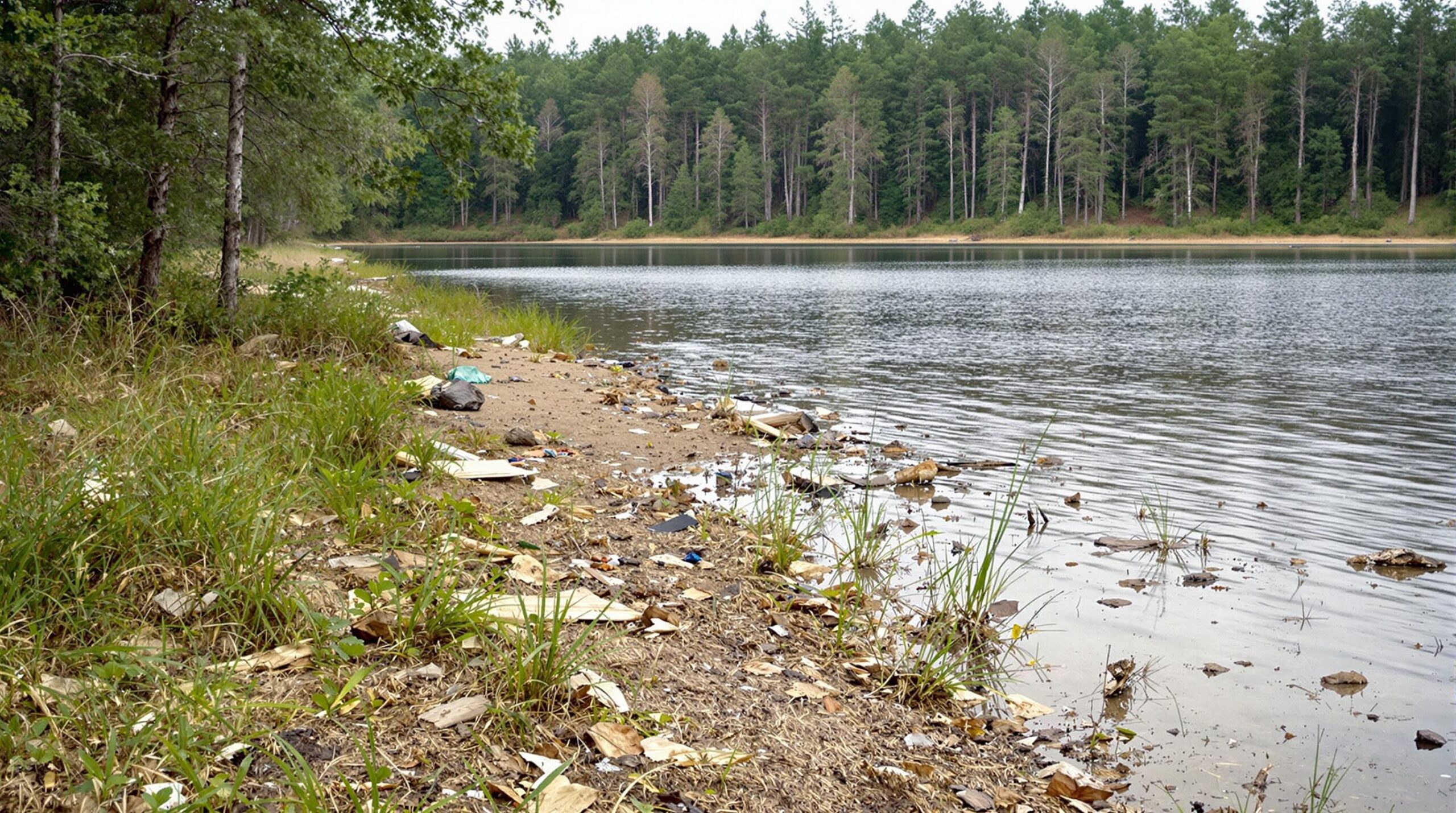The Rhode Island Department of Environmental Management has imposed an $82,500 fine on Bowdish Lake Campground for what officials describe as extensive environmental violations spanning multiple decades published report. The property encompasses roughly 200 acres in Glocester and Burrillville near two bodies of water known as Bowdish Lake and Wilbur Pond.
A notice of violation lists 13 alleged infractions over 10 sites, including clearing, filling and excavating wetlands, a swamp, riverbanks, and other regulated areas. RIDEM reported discovering at least 54 unauthorized docks and large quantities of discarded vehicles, construction debris, and other solid waste on the grounds. According to state officials, these actions impacted an estimated 116,000 square feet of protected terrain.
Records indicate that John Tillinghast has supervised activities at the campground since 1974, including the alterations that prompted the current enforcement measures. The campground first opened in 1973 and has historically offered hundreds of campsites, bathhouses, recreational courts, and hiking trails. According to the notice, aerial photos show ongoing modifications as recently as this year.
“Over a 25-year period, a pattern developed whereby DEM would notify the Tillinghasts of alleged environmental violations, both formally and informally, defendants would respond with an explanation, and DEM would not take further action for several years,” wrote Justice Francis Flaherty during a prior dispute between the state and the property owners. That past case involved sites near Wilbur Pond and resulted in a special master overseeing remedial steps, which RIDEM notes are separate from the issues currently at hand.
Bowdish Lake Campground’s operators stand accused of significant unauthorized earthwork, including constructing structures over sensitive wetlands without permits. Officials highlighted the alteration of riverbank wetlands and a swamp, prompting the prospect of replanting trees and other vegetation to restore affected habitat.
A closer inspection reportedly found a vast accumulation of material the state characterized as solid waste, including vehicles, tires, containers, and other remnants. In official documents, personnel described seeing vegetation growing among the debris, suggesting it had been left on-site for years. Public conversation around the campground has also raised concerns about lakeside septic systems, though that topic was not formally included in these latest violations.
RIDEM’s enforcement mandates immediate cessation of all unauthorized work and outlines restoration requirements such as removing fill and planting vegetation in targeted areas to reverse ecological damage. The financial penalty includes $70,000 payable to the General Treasury Water and Air Protection Program and $10,000 earmarked for the Environmental Response Fund. Officials stipulate that the sum must be paid within 30 days of the notice.
Outdoor facility administrators sometimes rely on multilayered strategies to safeguard wetlands and maintain compliance. Common practices include regular site surveys to identify and mark sensitive areas, ensuring that any proposed expansions or dock installations align with permits. Many property owners also coordinate with environmental consultancies to certify that habitats remain protected during landscaping, excavation, and other substantial modifications.
To address large-scale solid waste issues, sustainable disposal programs have become a frequent recommendation in the outdoor hospitality sector. Operators are often encouraged to develop protocols for separating recyclables, collecting bulk refuse, and transporting hazardous materials to approved offsite destinations. This approach can help reduce the risk of long-term storage and the environmental harm cited by state regulators at Bowdish Lake Campground.
Local, state, and federal agencies often reference broader guidelines advocating protective buffers around wetlands. The U.S. Army Corps of Engineers the Corps site outlines regulatory frameworks for safeguarding aquatic resources. The Bowdish Lake property now faces substantial costs and a strict timeline for corrections, highlighting the significance of comprehensive oversight for any water-adjacent commercial operation.
Many campground managers, however, have successfully avoided such issues by adhering to recognized best practices of ecological surveys, early stakeholder involvement, and coordinated habitat management. These steps can reduce the possibility of long-term disputes and unanticipated legal consequences.
In the case of Bowdish Lake Campground, RIDEM’s notice places renewed emphasis on restoring displaced wetlands and establishing compliance before further expansions or alterations arise. Officials have indicated they intend to monitor the required cleanup efforts, and the campground’s path to compliance may shape how similar recreation areas handle conservation directives in the future.
Proactive wetland preservation and regulatory compliance represent widely accepted best practices at campgrounds and similar outdoor facilities. Many operations prioritize regular site assessments to monitor sensitive habitats, engage with environmental agencies and consultants during planning, establish buffer zones to deter vehicle or foot traffic in vulnerable areas, and develop habitat management plans with erosion control measures. Such efforts can help prevent large-scale ecological damage and avoid the kinds of violations that have drawn attention to Bowdish Lake Campground.
Sustainable onsite waste management and disposal also remain central concerns across the outdoor hospitality industry. Strategies frequently include straightforward waste segregation, labeled collection points for various materials, regular pickups or use of approved offsite facilities, and thorough staff training on handling procedures. By implementing these measures, operators help ensure cleanliness and protect nearby water sources while minimizing the likelihood of regulatory penalties related to improper waste storage.


